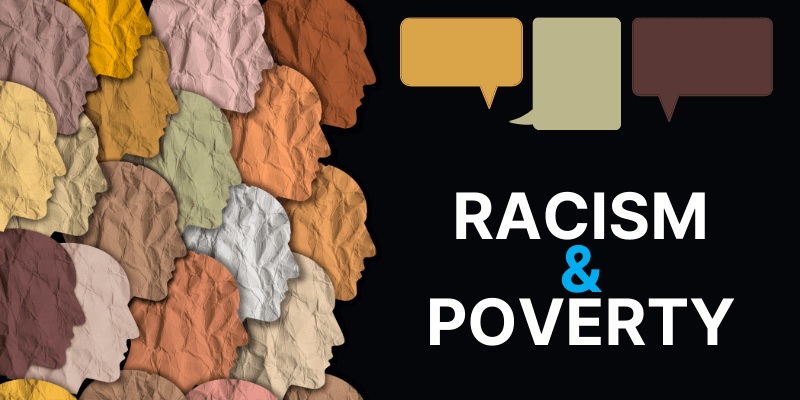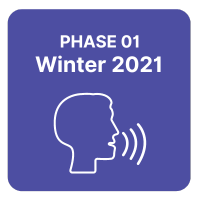Racism & Poverty: Unfolding the Conversation
In 2020, ATD Fourth World Movement USA staff decided that we were past due for frank conversations about racism in the United States and its relationship with poverty.
We had not yet developed practices to have an individual or an organizational reckoning with the racist history of the United States, and how it feeds today's systemic cycles of poverty. We had no practice to talk about racism, or even race.
So we decided to start small and start there: practice talking about racism, while keeping focused on our work to eradicate poverty.
What we have done, in five phases.
We did not know what would come next until the end of each phase. Throughout the phases we used and evolved these Principles and Guidelines for Participants.
How do we grow our ability to talk about racism and poverty in our movement?
We formed a small workgroup of people around the country, diverse in many ways including racial identity, but no one new to ATD Fourth World. We did the 21-day racial equity habit building challenge and met weekly for five weeks to share what we each were learning that was relevant to our work in ATD Fourth World. We were purposefully trying to develop best practices.
How do we grow the conversation?
A few more people were invited to the workgroup. We met monthly for six months. Each meeting, a different co-facilitator chose the topic and homework that usually included a video and reflection questions. After the first phase, our goals had developed into:
Working on oneself and sharing one's own experience
Looking at poverty as a bridge within social justice work
Gaining knowledge about racism
Gaining confidence to speak out about racism.
How do we include more people?
We developed the workgroup into a steering committee to guide the work forward, develop the best practices, and learn and practice facilitation.
We held a “Virtual Example” with an open invitation to ATD Fourth World members to join in an experience of how we had worked together in the spring.
How do we start from the beginning with more people?
We repeated the 21-day challenge with more people, divided into two virtual groups and one in-person group in Montreal.
How do we build our knowledge?
We formed knowledge-building groups around two topics:
ATD Fourth World US history through the lens of race. See summary here.
Systemic racism & intersectionality. See summary here.
Our goals were to work on more focused areas and share what we learned. This newsletter is the sharing.
Facilitation
Our process was foundational to this work, with very intentional and collective planning and facilitation.
We will share more about this process at a later time. For now, some key points:
When we started this work, the person with the skills, availability, and courage to lead this work was a white woman without firsthand experience of poverty, which we recognize is not the ideal leadership for the long term in conversations about racism and classism. We accepted this with our organizational commitment to develop facilitation skills across our diverse membership.
Throughout all the phases, we purposefully developed facilitation skills and best practices with people of diverse racial and ethnic groups taking the lead. By the fifth phase, the original facilitator was still guiding and supporting the steering committee with the facilitators of the knowledge-building groups more racially diverse.
A Best Practices for Facilitators guide has been in creation throughout this process. As we developed techniques that supported the complex and sensitive exchanges we were having around this topic, we noted what worked and what didn’t and committed to incorporate the lessons going forward.
Our next steps in this work will focus on these questions:
How do we talk about Racism and Poverty?
Individually, within ATD Fourth World groups, and outside ATD Fourth World?
How do we look at ATD Fourth World and our governance not just through a lens of classism, but also of racism?







